
Large faux trees aren’t the typical feature of a highly anticipated runway show, but it’s London Fashion Week and the city’s designers don’t like to adhere to the conventional. The trees in question, nestled smack dab in the middle of the makeshift runway, transformed London’s Methodist Central Hall in Westminster into a mystical, tropical paradise teaming with editors, stylists and tastemakers (chirping birds and Afrobeats were the background track).
It all came together for designer Priya Ahluwalia’s Autumn-Winter 2024 collection, entitled “Reveries,” a project drawn from the imaginative tales of Indian and Nigerian folklore. On a cloudy Friday evening the British designer presented her co-ed collection, which in true Alhuwalia form skewed equal parts sporty and regal. It infused elements of the designer’s own Indian-Nigerian heritage with dresses skillfully draped into elaborate hoods and artfully wrapped tops that recall a saree. Priya Alhuwalia continued her strength of functional staples in bold prints that demand to be seen, with worldly patterns that look like if Ankara went to a motocross convention.
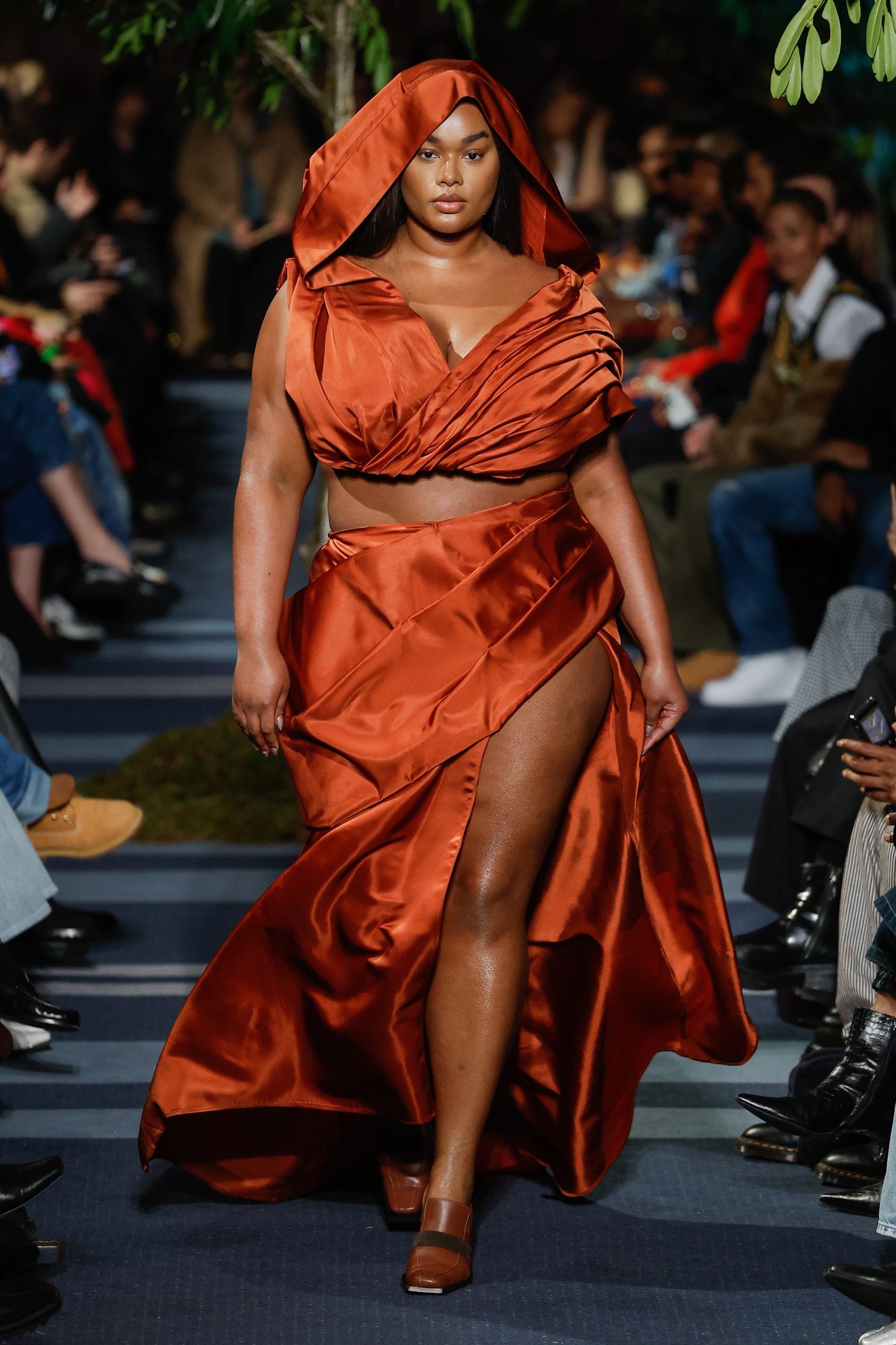
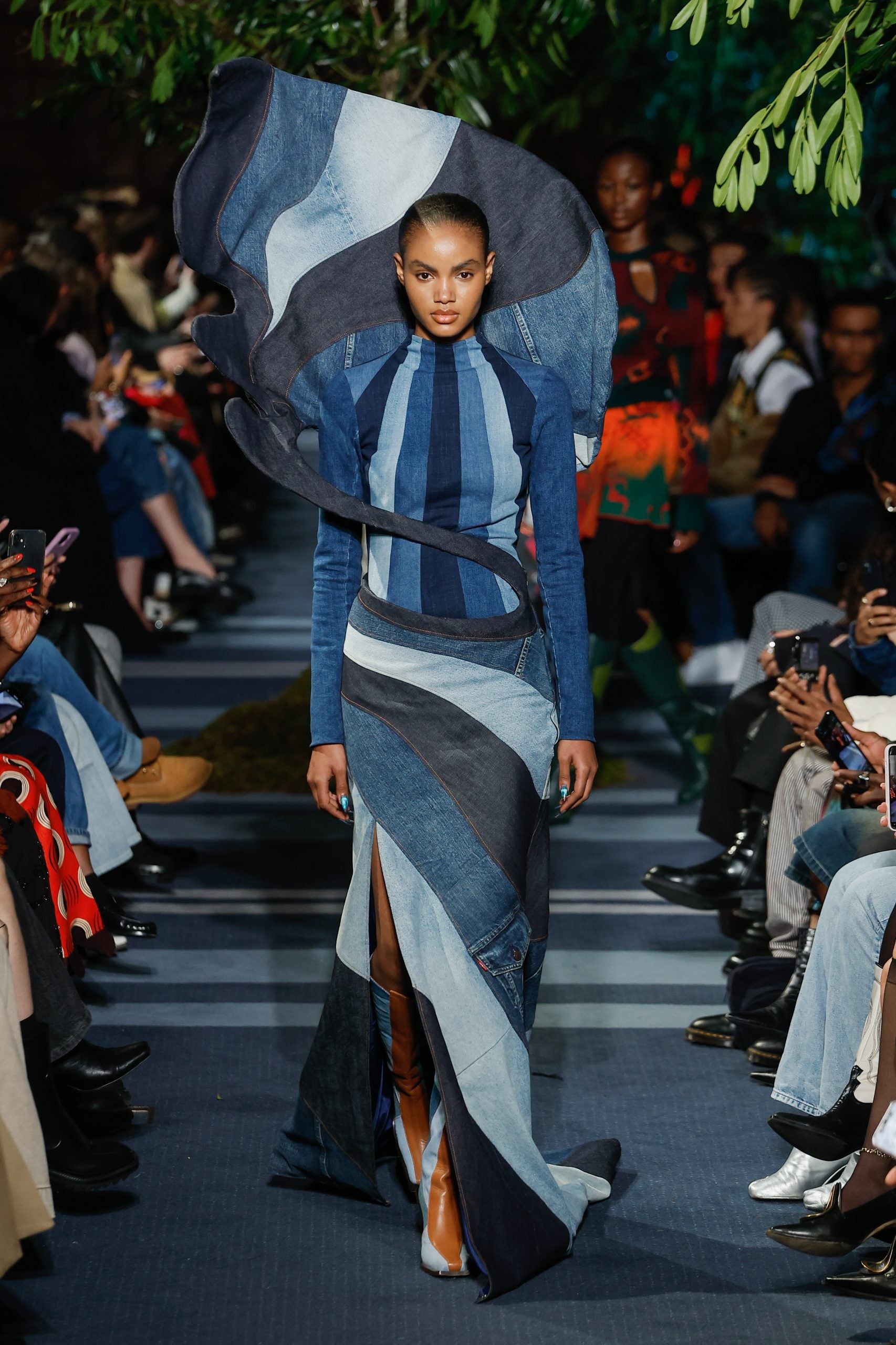
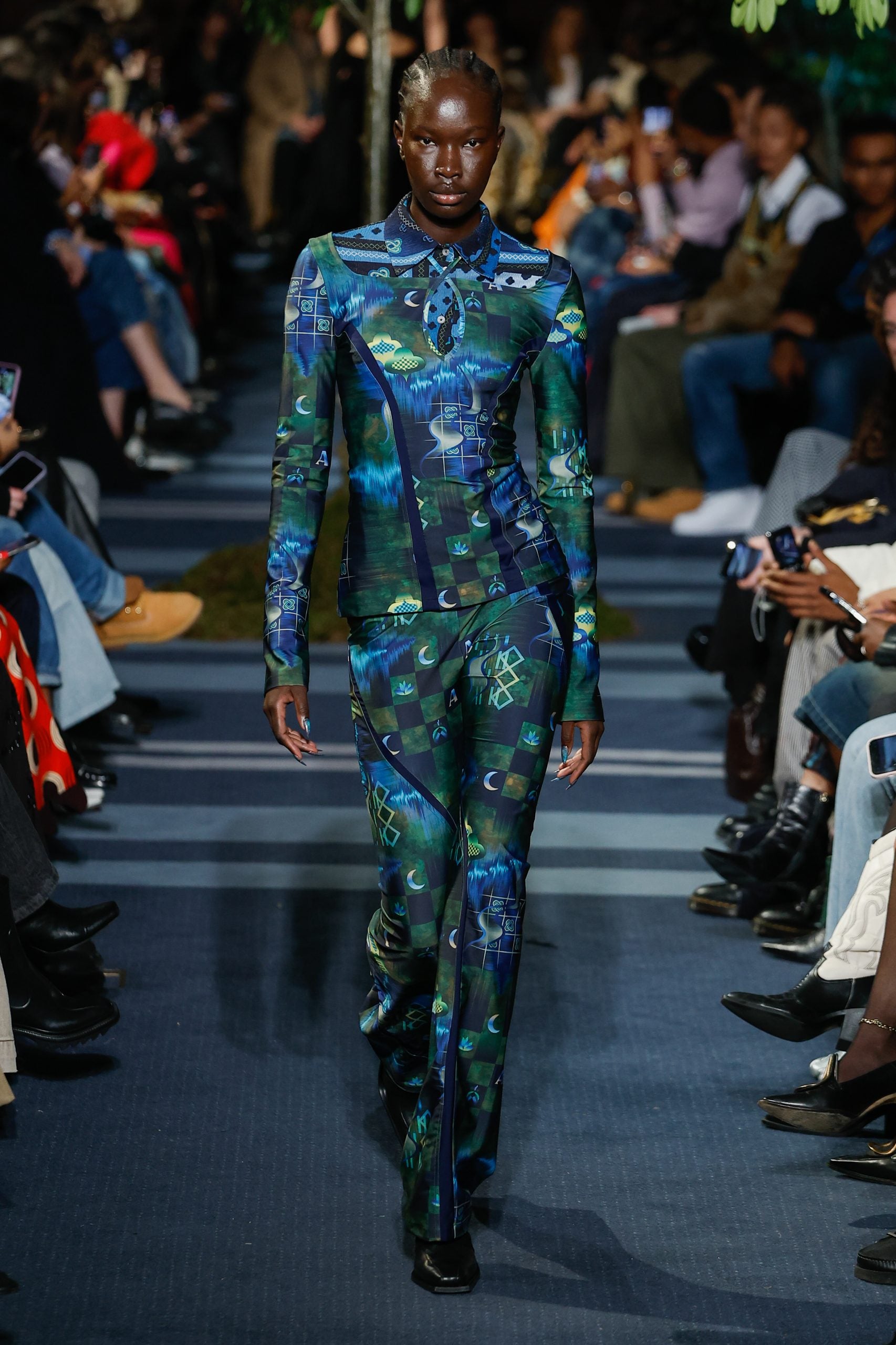
Some designers have consumers, but Priya Ahluwalia has fans. In 2024, when the ultimate barometer of a designer’s popularity is just how many mainstream collaborations they’ve got under their belt, in the roughly 6 years since Ahluwalia first launched her label, she has gone on to design guest collections for Ganni, Paul Smith and Mulberry. The designs of her latest partnership, a collaboration with Levi’s, debuted on the runway via a patchwork denim dress inspired by Ayanfe Olarinde’s “Genesis.”
Elsewhere down the River Thames, Labrum London continued the narrative of the African diaspora with a show presented at the Tate Britain. For the label’s 10th year anniversary founder and creative director Foday Dumbuya used the museum as a backdrop to showcase a story of immigration—a contentious topic that continues to dominate the news cycle of a post-Brexit Britain. It’s also a subject Dumbuya has carefully chosen to weave into every space of his label’s DNA. The phrase “Designed by an immigrant” has become a identifier of the brand, hash tagged on its Instagram page and living on as a slogan on its shirts.
For Labrum’s A/W 2024 show, Dumbuya chose to zoom in on the artistic contributions of immigrant artists. “The reason why I’m telling this story today is because immigrants are the fabric of our society. I think we forget that,” said Dumbuya post show. Models walked the runway in silk rap ikat designs inspired by Afghanistan Turkmens tribes and draped capes symbolizing the “West African flair” Dumbaya and his team has made a signature of Labrum. But the message felt most salient in the collection’s headwear—custom hats made by milliner Lucy Barlow fashioned to look like daily objects–a suitcase, a woven basket, (even an Adidas duffle bag was also imagined as a headpiece) represented the belongings that become a part of an immigrant’s physical journey. Kufi hats rounded out its robust headwear assortment. But the piece de resistance was a showpiece inspired by an image captured by James L. Stanfield. Comprised of a display of flags displayed on a large frame, the final look referenced “countries that have been involved in key migrations throughout history,” according to a release.
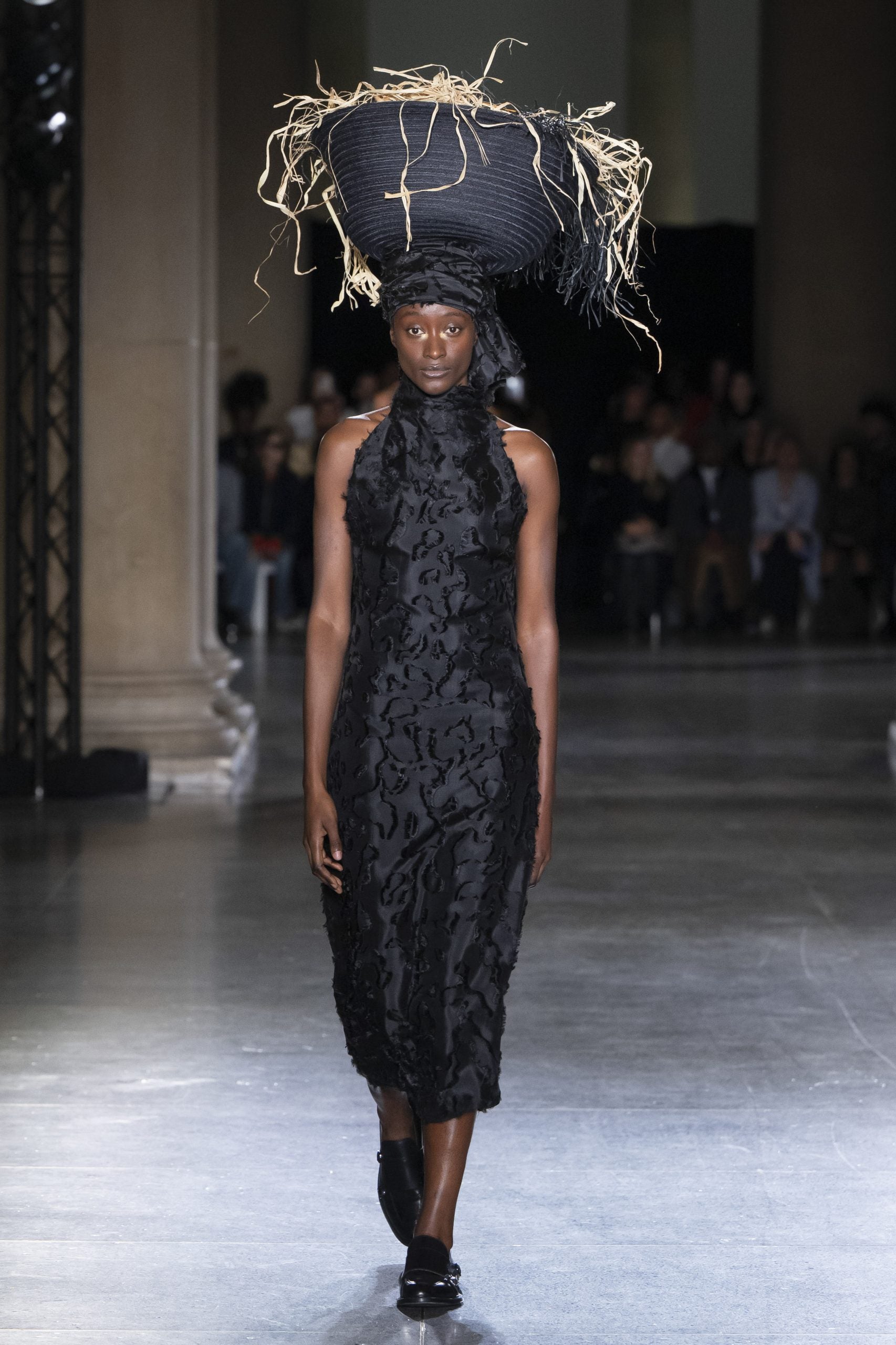
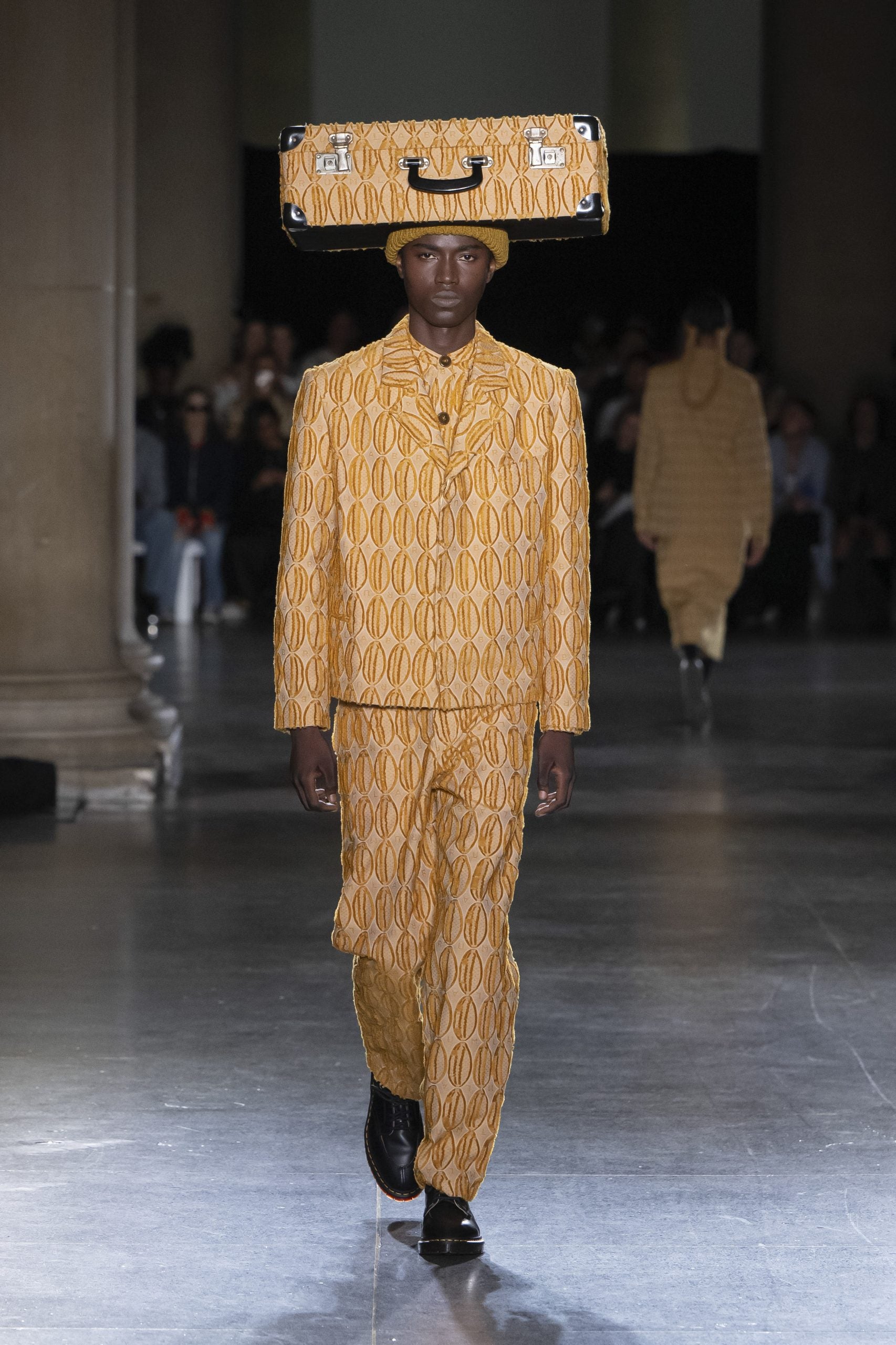
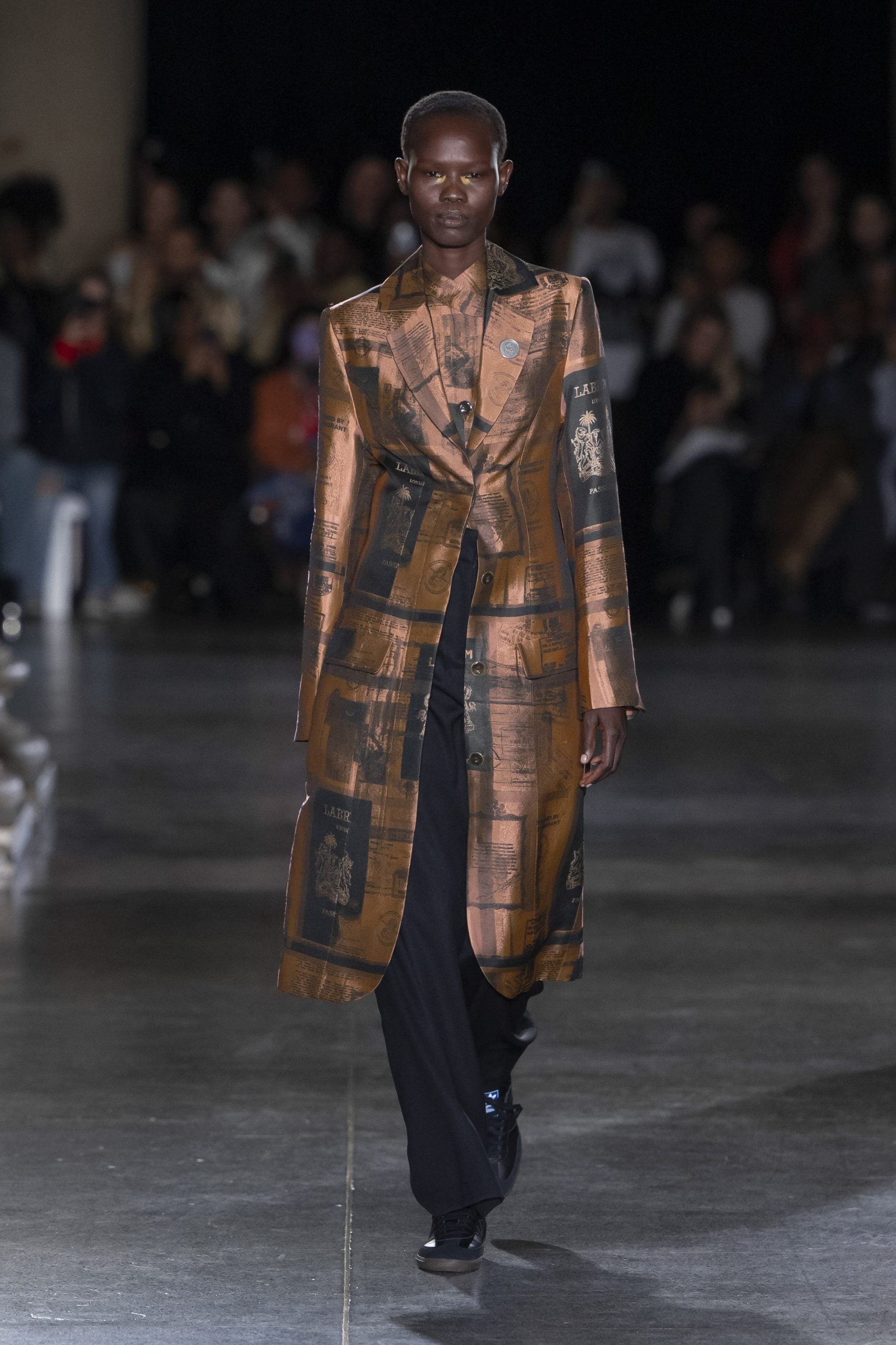
Impactful moments like Friday’s show have propelled Dumbuya as a guiding figure in the London fashion scene. Last May, he won the Queen Elizabeth II Award for British Design, a prize previously bestowed upon designers like Richard Quinn and Ahluwalia. However, Dumbuya is eager to share credit for Labrum’s success. In a touching speech at the end of the show, Dumbaya shouted out stylist IB Kamara (who was also in attendance) before bringing out his team to receive applause. “They don’t like to be on camera, but I embarrassed them and said you have to come out, you have to show your face, and show the people behind this brand.”